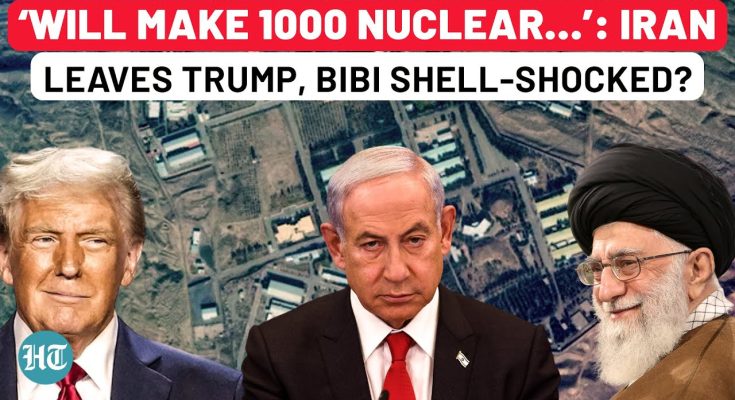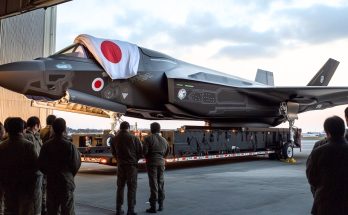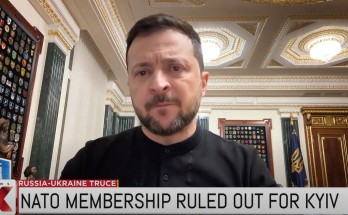Iran’s latest declaration has sent shockwaves through the corridors of power in both the United States and Israel. In a move that shocked both U.S. President Donald Trump and Israeli Prime Minister Benjamin Netanyahu, Iran has openly warned that any Israeli strike on its nuclear sites would result in catastrophic consequences. This unprecedented statement has raised the stakes in the already volatile Middle East and could reshape the dynamics of the region’s security architecture.
The backdrop of this declaration lies in the ongoing tensions between Iran, Israel, and the United States over Iran’s nuclear program. For years, Israel has consistently expressed its concern that Iran is on the brink of developing nuclear weapons. Israel has been at the forefront of efforts to sabotage Iran’s nuclear ambitions, with reports of cyberattacks, sabotage operations, and even targeted assassinations of Iranian scientists. Israel’s strategy has largely been one of deterrence, warning Iran of dire consequences if it continues its pursuit of nuclear capabilities.
However, Iran’s recent statement is a dramatic shift in tone. Iranian officials, including high-ranking figures within the Islamic Revolutionary Guard Corps (IRGC), have declared that if Israel were to strike its nuclear facilities—whether through airstrikes or cyberattacks—the consequences would be devastating. Specifically, Iranian officials have warned that Iran would retaliate with overwhelming force, potentially targeting Israel’s critical infrastructure, military bases, and even civilian areas.
The most startling part of Iran’s declaration comes from their warning about the scale of their retaliation. Iranian officials have suggested that they would strike not just one or two Israeli targets but a series of critical military and infrastructure sites, numbering in the hundreds. These potential strikes could cripple Israel’s economy and military, and would likely cause widespread devastation. While this has yet to be formally tested, the sheer audacity of the threat represents a significant escalation in Iran’s rhetoric.
This warning to Israel is not just a diplomatic or political maneuver. It is a message to the international community, particularly the U.S., that Iran is prepared for a full-scale conflict if pushed to the brink. Trump and Netanyahu’s ongoing efforts to counter Iran’s nuclear program, including the U.S. withdrawal from the 2015 nuclear deal (Joint Comprehensive Plan of Action) and Israel’s involvement in cyber operations against Iran, have undoubtedly raised tensions. But Iran’s threat suggests that it is no longer only concerned with the development of nuclear weapons; it is also willing to engage in a full military confrontation to defend its interests.
For Netanyahu, this statement underscores the vulnerability of Israel in a region where threats from adversaries are mounting. Israel’s military has long prided itself on its technological superiority and advanced missile defense systems, such as the Iron Dome, but Iran’s rhetoric implies that the Jewish state may not be able to rely on its defensive measures alone.
On the other side, President Trump’s response to Iran’s provocative statement will be crucial. The U.S. has consistently been Israel’s closest ally, providing military and diplomatic support in its efforts to contain Iran. Trump, who has already made his position on Iran clear, may face mounting pressure from both Israel and Gulf Arab states to take a firmer stance against Tehran’s nuclear program. However, the potential for conflict escalating into a broader regional war might prompt a more cautious response from the U.S. administration, which has been reluctant to engage in another military conflict in the Middle East.
Iran’s statement, though alarming, is also a reminder of the fragile nature of the Middle East’s security balance. The geopolitical fault lines between Iran, Israel, and the U.S. continue to be a ticking time bomb, and any misstep by any side could lead to an uncontrollable escalation. In an environment where alliances shift and military operations are ever more sophisticated, the stakes are higher than ever. What Iran’s “shock” to Trump and Netanyahu truly signifies is a clear warning: the status quo of military brinkmanship may no longer be enough to prevent the inevitable confrontation in the region.



